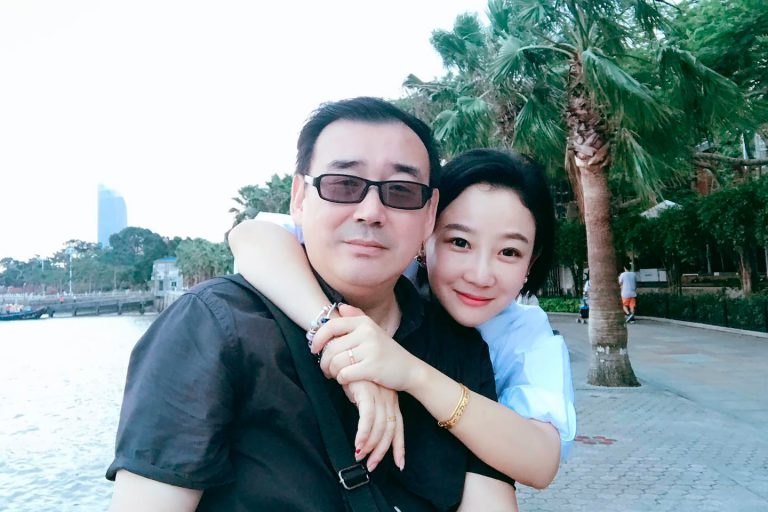Chinese Foreign Ministry spokesman Wang Wenbin said Yang was convicted of espionage before the Second Intermediate Court in Beijing in a trial that was “fully consistent with the law.” The ruling comes after a closed trial in May 2021 where details of the charges against Yang were not revealed. He has denied all charges.
Australian Foreign Minister Penny Wong said her government was “appalled” by the ruling.
“This is terrible news for Dr. Yang, his family, and everyone who supported him,” Wong wrote in a letter. statement. “All Australians want to see Dr Yang reunited with his family. We will not relax in our call.”
Yang, a naturalized Australian citizen since 2002, was arrested at Guangzhou airport in January 2019 while visiting China with his family. He was officially charged with spying on China for another government, but the authorities did not reveal the name of the country.
Yang's wife and an official from the Australian Embassy attended Monday's hearing, which lasted 30 minutes, according to Zhongyi Feng, an associate professor at the University of Technology Sydney, a former doctoral supervisor and a friend of Yang's.
Feng spoke with Yang's wife, Yuan Ruijian, who said she was able to make eye contact with Yang briefly before he was taken away. “He looked very thin and fragile,” Feng said.
Feng condemned the sentencing of his friend and called on the international community, especially the Australian government, to maintain pressure on Beijing.
“that it [being] He was punished for his posts defending universal values such as democracy, the rule of law and human rights, He also criticized the government for human rights violations in China.
Yang's lawyer, Mo Xiaoping, said his client has 10 days to appeal his sentence. But in China's court system, where conviction rates reach 99%, such appeals are unlikely to succeed.
While in detention, Yang was prevented for several months from seeing a lawyer or communicating with family, according to Feng. Australian officials said they were concerned about reports of solitary confinement and torture to which Yang was subjected.
His health has deteriorated. In a letter to Prime Minister Anthony Albanese ahead of a visit to China in November, Yang's children said their father collapsed in prison and appealed to Albanese to secure his release. They were told that Yang had a 10cm long cyst growing on his kidney.
Daniela Gavshon, Australia director of Human Rights Watch, said the ruling “highlights Beijing's opaque criminal justice system, which is controlled by the Chinese Communist Party.” “While the Australian Government has condemned the outcome, stronger action is needed.”
Yang's sentencing comes less than four months after the release of Australian journalist Qing Lei, who had been detained in China for three years. The contrast between the two cases underscores the limits of new efforts to mend tense relations between Canberra and Beijing.
Like Yang, Cheng, an anchor for an English-language state radio station, was found guilty of espionage during a trial held behind closed doors.
While her release, after lengthy negotiations between the two countries, appeared to reflect the recent stabilization of relations between the two countries after years of discord, a harsh sentence for Yang will inject renewed tension into the relationship, experts said.
“This shows you the limits of stability,” said James Curran, a history professor at the University of Sydney, who recently wrote a book on relations between Beijing and Canberra. He said Australian Prime Minister Anthony Albanese had tried to improve relations without making concessions to China, culminating in a visit to Beijing in November. But Yang's ruling would be a setback.
“We are dealing with an Australian citizen who is on a suspended death sentence and faces life imprisonment,” Curran said. “This will undoubtedly cast a dark shadow on the management of the relationship in the future. It won't derail it, but it will certainly inject real gloom about the relationship between Australia and China over the next six to 12 months.
Richard MacGregor, a senior fellow for East Asia at the Lowy Institute and a scholar of East Asia, said the ruling was more extreme than expected and showed that at least part of the Chinese government was “indifferent to its impact on bilateral relations with Australia.” Australian Think Tank.
“We've seen recently that Australia and China are setting a lower bound for the relationship,” MacGregor said. “This is a reminder that there is a ceiling, and sometimes it is very low.”
Above all, the ruling appears to target pro-democracy activists like Yang, he added.
“The inevitable outcome is that he will die in prison,” McGregor said. “So someone somewhere is trying to send a message to people like Dr. Yang.”
The two experts said Australia had few options for how to respond.
Wong told reporters that she had summoned the Chinese ambassador to express her government's “objection” to the news, but stopped short of expelling him. When asked whether Australia would cancel its plans to host the Chinese president or Premier later this year, Wong appeared to indicate that the visit would continue.
“Stability means that we cooperate where we can, disagree where we must, and engage in the national interest,” she said, adding: “This is clearly an occasion where we disagree.”

